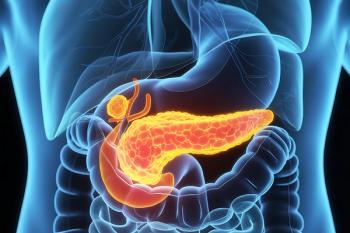
Pfizer Stops GLP-1 Obesity Trial Because of High Discontinuation Rates
Twice-daily danuglipron was being studied in a phase 2 study in adults with obesity. Pfizer is now conducting a pharmacokinetic study for a once-daily formulation.
Pfizer has stopped the phase 2 trial of danuglipron (PF-06882961), its twice-daily oral glucagon-like peptide-1 receptor agonist (GLP-1) candidate to treat obesity. Danuglipron was being studied for adults with obesity and without type 2 diabetes.
The study met its primary endpoint demonstrating statistically significant change in body weight from baseline, but more than 50% of patients discontinued treatment across all doses compared about 40% with placebo. No new safety signals were reported and treatment with danuglipron was not associated with increased incidence of liver enzyme elevation compared with placebo. Most adverse events were mild and gastrointestinal in nature.
Pfizer indicated in a
“We believe an improved once-daily formulation of danuglipron could play an important role in the obesity treatment paradigm, and we will focus our efforts on gathering the data to understand its potential profile,” Mikael Dolsten, M.D., Ph.D., chief scientific officer and president of Pfizer Research and Development, said in the press release. “Results from ongoing and future studies of the once-daily danuglipron modified release formulation will inform a potential path forward with an aim to improve the tolerability profile and optimize both study design and execution.”
The phase 2b dose-ranging study evaluated the efficacy and safety of danuglipron evaluated in three cohorts. Cohorts 1 and 2 with a total of 497 patients were evaluated with one-week and two-week titration steps over 26 weeks with target doses at 40 mg, 80 mg, 120 mg, 160 mg and 200 mg twice-daily. Cohort 3 with 129 patients was evaluated with four-week titration steps over 32 weeks with target doses at 80 mg, 140 mg and 200 mg twice-daily.
Twice-daily dosing showed statistically significant reductions from baseline in body weight for all doses compared with placebo. Depending on titration schedule, participants were at target dose levels for 6 to 24 weeks.
Danuglipron was not associated with increased incidence of liver enzyme. While adverse events were mild, high rates were seen, with up to 73% of patients experiencing nausea, up to 47% experiencing vomiting and up to 25% experiencing diarrhea. This led to high discontinuation rates. Data from this study will be presented at a future scientific conference or published in a peer-reviewed journal, the company said.
Previous results from this phase 2 trial were
Additionally, the phase 2a study of danuglipron in patients with type 2 diabetes who are treated with metformin and in non-diabetic adults with obesity showed declines in HbA1c, fasting plasma glucose (FPG) and body weight.
Newsletter
Get the latest industry news, event updates, and more from Managed healthcare Executive.























